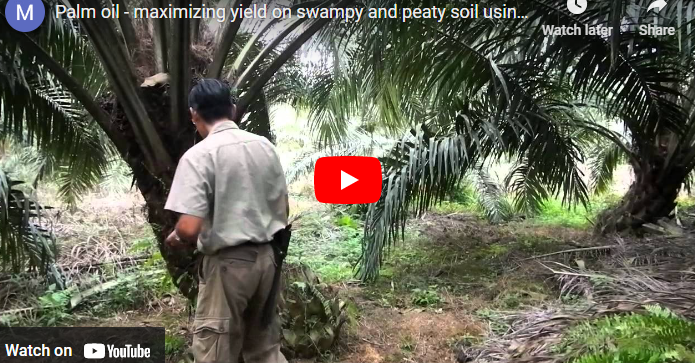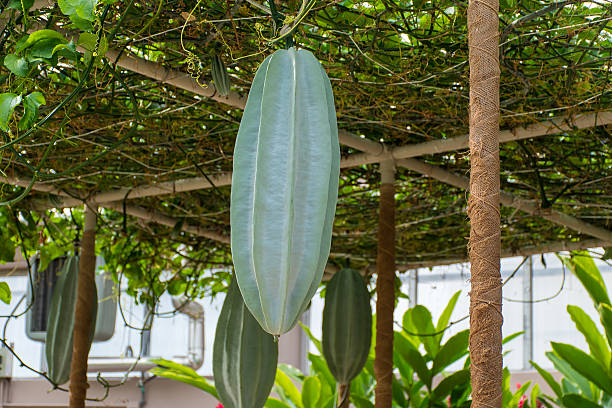Palm oil trees are renowned for their economic and environmental significance, producing one of the world’s most widely used vegetable oils. To ensure optimal growth and high yields, it is crucial to provide the right nutrients to these trees.
Some of the best fertilizers for palm oil tree are Nitrogen-rich fertilizers like urea, ammonium nitrate, or ammonium sulfate promote lush foliage growth and green coloration.
Selecting the best fertilizer for palm oil trees, whether organic or inorganic, plays a vital role in promoting their health, productivity, and sustainability. In this article, we will explore the 15 best fertilizers for palm oil trees, highlighting both organic and inorganic options.
15 Best Fertilizer for Palm Oil Trees Organic & Inorganic
Organic Fertilizers
1. Compost: Boosting Growth with
Enhance soil fertility and nutrient content by applying compost rich in organic matter. This aids in the long-term health and vigor of palm oil trees.
Read Also: 15 Best Fertilizers for Apple and Pear Trees: Organic & Inorganic
2. Vermicompost:
The nutrient-rich castings from earthworms, known as vermicompost, provide an excellent source of organic matter and beneficial microorganisms.
3. Manure:
Utilize well-composted manure from farm animals to enrich the soil with essential nutrients and organic matter.
Read Also: 15 Best Fertilizers for Pepper [Organic & Inorganic]
4. Green Manure: Going Green
Incorporating cover crops, such as legumes or grasses, improves soil structure, adds nutrients, and prevents erosion.
5. Mulching:
Applying organic mulch around palm oil trees conserves moisture, suppresses weeds, and gradually releases nutrients.
Read Also: 15 Best Fertilizers for Cassava Farm [Organic & Inorganic]
Inorganic Fertilizers
6. Nitrogen Boosters:
Nitrogen-rich fertilizers like urea, ammonium nitrate, or ammonium sulfate promote lush foliage growth and green coloration.
Read Also: 15 Best Fertilizer for Rice Farm [Organic & Inorganic Fertilizers]
7. Phosphorus Powerhouses:
Fertilizers high in phosphorus, such as superphosphate or rock phosphate, enhance root development, flowering, and fruiting.
8. Potassium-Kick:
Fertilizers containing potassium, like potassium chloride or potassium sulfate, improve overall tree health, water regulation, and disease resistance.
Read Also: 15 Best Fertilizers for Groundnut [Organic & Inorganic]
9. Micronutrient:
Palm oil trees require trace elements like iron, manganese, zinc, and copper. Micronutrient fertilizers ensure proper nutrition and prevent deficiencies.
10. Slow-Release Saviors:
Controlled-release fertilizers gradually release nutrients over an extended period, minimizing nutrient leaching and optimizing absorption.
Read Also: 21 Best Fertilizer for Soybeans Organic & Inorganic: Maximizing Yield and Quality
11. Combination Fertilizers
Complete Palm Oil Fertilizers:
Specially formulated blends with a balanced ratio of nitrogen, phosphorus, and potassium, supplemented with essential micronutrients, offer comprehensive nutrition for palm oil trees.
Read Also: The Ultimate Guide to Maize Fertilizer Schedule: Boost Your Crop’s Growth
12. NPK Formulas:
Fertilizers with varying ratios of nitrogen (N), phosphorus (P), and potassium (K) can be customized to address specific nutrient requirements at different growth stages.
Read Also: 15 Best Fertilizers for Watermelon: Organic & Inorganic
13. Liquid Fertilizers:
Convenient and easily absorbed, liquid fertilizers provide an immediate nutrient boost for palm oil trees.
14. Granular Fertilizers:
These solid fertilizers are easy to apply, allowing for controlled release of nutrients and long-lasting effects.
Read Also: 12 Liquid Fertilizers for Maize: Boost Your Crop’s Growth!
15. Foliar Fertilizers:
Applied directly to the leaves, foliar fertilizers provide a quick nutrient uptake and are useful for correcting deficiencies or supplementing nutrient needs.
What are the benefits of using organic fertilizers for palm oil trees?
Organic fertilizers enrich the soil with organic matter, improve soil structure, foster beneficial microbial activity, and promote long-term tree health without causing harm to the environment or groundwater.
Are inorganic fertilizers harmful to palm oil trees?
When used responsibly and following recommended application rates, inorganic fertilizers can provide nutrients that palm oil trees require for optimal growth. However, excessive and improper use of inorganic fertilizers can lead to nutrient imbalances, soil degradation, and environmental pollution.
How often should palm oil trees be fertilized?
The frequency of fertilization depends on various factors such as soil fertility, tree age, and growth rate. Generally, it is recommended to fertilize palm oil trees 2-4 times per year, with a balanced approach to avoid over-fertilization.
Can I use a combination of organic and inorganic fertilizers?
Yes, combining organic and inorganic fertilizers can provide a comprehensive nutrient supply for palm oil trees. This approach harnesses the benefits of both types of fertilizers, promoting sustainable growth while addressing specific nutrient requirements.
What are the signs of nutrient deficiency in palm oil trees?
Common signs of nutrient deficiency include yellowing or discoloration of leaves, stunted growth, poor fruit production, and increased susceptibility to pests and diseases. Conducting soil tests can help identify specific nutrient deficiencies.
How should fertilizers be applied to palm oil trees?
Fertilizers should be evenly spread around the base of the palm oil tree, taking care to avoid direct contact with the trunk. Watering the area after application helps to incorporate the nutrients into the soil.
Conclusion
Selecting the right fertilizer is crucial for the growth, productivity, and sustainability of palm oil trees. Whether you choose organic or inorganic options, it’s essential to consider the specific nutrient requirements of these trees.
The 15 best fertilizers for palm oil trees, including organic, inorganic, and combination choices, provide a range of solutions to meet these needs. Remember to follow recommended application rates and practices to prevent over-fertilization and environmental harm.
By nourishing palm oil trees with the best fertilizers, we can support their optimal growth, ensure high yields, and contribute to the sustainable production of this valuable vegetable oil.



